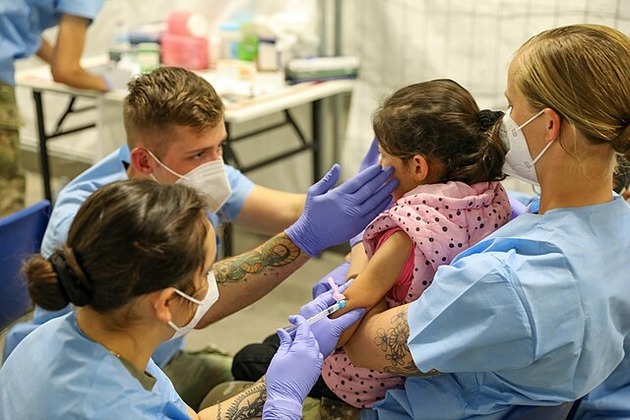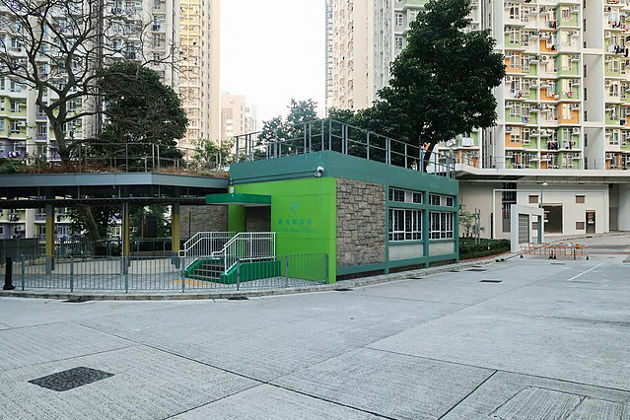China's textile giant drives green innovation as Xinjiang evolves
Xinhua
12 Jul 2025, 13:46 GMT+10

URUMQI, July 12 (Xinhua) -- In Shihezi, a major cotton producing area in northwest China's Xinjiang Uygur Autonomous Region, Esquel Group is building a factory that utilizes waterless dyeing technology, a first of its kind for the global cotton textile industry.
The Hong Kong-headquartered garment manufacturer has long operated in Xinjiang since 1995, drawn by the region's premium long-staple cotton and strong talent pool. Despite recent external challenges, including being added to the U.S. government's "entity list" in 2020, Esquel has responded with continued investment, innovation, and an unwavering commitment to the region.
Rather than retreat, the company doubled down on enhancing its technological capabilities -- turning challenges into opportunities to sharpen Xinjiang's competitiveness in the global textile value chain.
The Shihezi project marks the commercialization of the technological effort to address a long-standing bottleneck in the region's textile value chain -- the large consumption of water in traditional cotton dyeing as opposed to the scarcity of water in Xinjiang.
The water concerns used to prevent Esquel from setting up weaving and garment production in the region. Now, with waterless dyeing, it can complete the entire value chain locally, creating more value for Xinjiang cotton, said Marjorie Yang, chairman of the group.
"The textile industry is often looked down upon," Yang said. "It falls upon us, the industry's practitioners, to change that stereotype that we harm the environment, and I'm confident we can rise to the challenge and do better."
LONG-TERM COMMITMENT
Xinjiang is China's foremost producer of high-quality cotton. In 2024, the region produced 5.69 million tonnes of cotton, accounting for over one-fifth of the world's total. The region's cotton and textile industry provided jobs for nearly 1 million people, despite market disruptions caused by Western sanctions.
Before being added to the entity list, Esquel supplied over 100 million shirts annually to world-renowned brands. In 2018, its annual sales exceeded 1.3 billion U.S. dollars, with over 60 percent coming from European and American markets.
Although the company faced significant short-term impacts due to shifting market conditions, including factory closures in Malaysia and Sri Lanka, as well as one spinning mill in Xinjiang, Esquel continues to move forward with long-term vision and purpose.
Yang reaffirmed that Esquel has always upheld high standards of workplace safety, transparency, and employee well-being, adding that the Changji facility had previously been recognized by one of the group's machinery suppliers as a global model for its advanced technology and working conditions. "All our spinning mills in Xinjiang are air-conditioned," she said.
"Esquel has spent over 30 years in Xinjiang creating quality jobs for people of all ethnic groups and conducting cotton purchases that have boosted farmers' incomes," Yang said, noting that this has only strengthened Esquel's resolve to defend Xinjiang's long-staple cotton against external pressure.
Yang said the company hires openly based on merit and individual interest. The local government makes referrals including for members of ethnic minority groups, believing that the factory offers quality employment. "I think they are actively working to improve people's lives, and there is no requirement that we must hire them," she said.
Today, Esquel remains a buyer of Xinjiang long-staple cotton, working with more than 1,000 local farmers. Though market shifts have reduced this from a previous peak of 12,000, the mutual trust remains strong -- reinforcing the company's decision to stay invested in the region.
"We have every reason to stay here. Esquel stands committed," Yang said, adding that it was up to her generation to ensure that the unfounded allegations are no longer seen as credible.
"WE WILL THRIVE"
Esquel has responded to global shifts by accelerating its transformation from a manufacturing-led company to one powered by technology, brand-building, and R
"Major disruptions actually forced us to tap into our potential," said Yang. "We had talked about building our own brands for a decade -- now we're finally going all in." Today, Esquel distributes PYE and DETERMINANT shirt brands, gaining traction in both domestic and international markets.
Greater focus was also placed on industrial innovation and value chain upgrades. The group invests around 200 million yuan (about 27.8 million U.S. dollars) annually in R, with significant progress in water management, wastewater treatment, salt recovery and natural dyeing.
"Xinjiang offers the best cotton and the most affordable energy. Before, we were missing out by shipping raw cotton out for processing," Yang said. "With this new technology, Xinjiang's cotton sector can achieve complete value-added processing locally."
Thanks to government efforts to leverage regional advantages and extend industrial chains, Xinjiang is rapidly emerging as a textile manufacturing hub. By the end of 2024, the region was home to 3,848 registered textile and garment companies, employing 970,000 people. The number of spindles rose from 7 million in early 2014 to 29.1 million in late 2024, and the local processing rate for cotton climbed from 11 percent to 42 percent.
"Xinjiang's textile sector is vibrant and increasingly attractive to investors from across China," said Liang Yong, director of the region's cotton industry development leading group office.
The establishment of a new national-level cotton and yarn trading center in Urumqi at the end of 2023 further bolstered the industry. Huang Liansheng, managing director of China CTEXIC Corporation, a leading integrated service provider of textile trade, noted that it will help enhance the international appeal of Chinese cotton and yarn.
Beyond driving product upgrades, Esquel is pioneering new growth models. In Urumqi, the company transformed its closed spinning mill into the Esquel Innovation Incubation Village, a platform for incubating cutting-edge technologies such as smart cotton-topping robots and LED plant factories, all aimed at boosting Xinjiang's local innovation capacity.
Through technological and managerial innovation, Yang's company aims to equip Xinjiang's cotton textile industry with self-sustaining innovative capabilities to maintain long-term competitiveness.
"No matter the external pressures, as long as we remain anchored in strong fundamentals and true confidence, we will not just endure -- we will thrive," she said.
 Share
Share
 Tweet
Tweet
 Share
Share
 Flip
Flip
 Email
Email
Watch latest videos
Subscribe and Follow
Get a daily dose of California Telegraph news through our daily email, its complimentary and keeps you fully up to date with world and business news as well.
News RELEASES
Publish news of your business, community or sports group, personnel appointments, major event and more by submitting a news release to California Telegraph.
More InformationInternational
SectionCDC: US records 1,288 measles cases, most since 1992 outbreak
ATLANTA, Georgia: The United States is facing its worst measles outbreak in more than three decades, with 1,288 confirmed cases so...
Gaza War sucking life out of an Israeli generation
In the past month alone, 23 Israeli soldiers have been killed in Gaza—three more than the number of remaining living hostages held...
Faulty IT system at heart of UK Post Office scandal, says report
LONDON, U.K.: At least 13 people are believed to have taken their own lives as a result of the U.K.'s Post Office scandal, in which...
Travelers can now keep shoes on at TSA checkpoints
WASHINGTON, D.C.: Travelers at U.S. airports will no longer need to remove their shoes during security screenings, Department of Homeland...
Rubio impersonator used AI to reach officials via Signal: cable
WASHINGTON, D.C.: An elaborate impersonation scheme involving artificial intelligence targeted senior U.S. and foreign officials in...
Warsaw responds to migration pressure with new border controls
SLUBICE, Poland: Poland reinstated border controls with Germany and Lithuania on July 7, following Germany's earlier reintroduction...
Business
SectionAI saves $500 million for Microsoft as layoffs reshape strategy
REDMOND, Washington: Artificial intelligence is transforming Microsoft's bottom line. The company saved over US$500 million last year...
FTC’s rule to ease subscription cancellations struck down by court
WASHINGTON, D.C.: A federal rule designed to make it easier for Americans to cancel subscriptions has been blocked by a U.S. appeals...
Musk’s X loses CEO Linda Yaccarino amid AI backlash, ad woes
BASTROP, Texas: In a surprising turn at Elon Musk's X platform, CEO Linda Yaccarino announced she is stepping down, just months after...
Ex-UK PM Sunak takes advisory role at Goldman Sachs
NEW YORK CITY, New York: Former British prime minister Rishi Sunak will return to Goldman Sachs in an advisory role, the Wall Street...
Gold ETF inflows hit 5-year high as tariffs drive safe-haven bets
LONDON, U.K.: Physically backed gold exchange-traded funds recorded their most significant semi-annual inflow since the first half...
PwC: Copper shortages may disrupt 32 percent of chip output by 2035
AMSTERDAM, Netherlands: Some 32 percent of global semiconductor production could face climate change-related copper supply disruptions...













